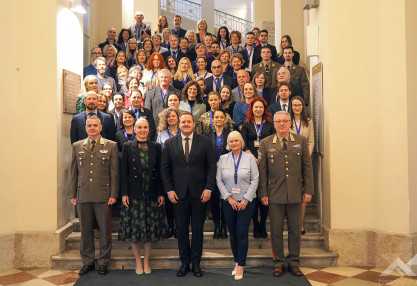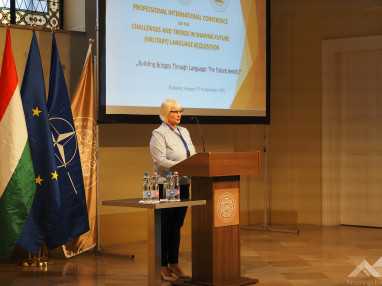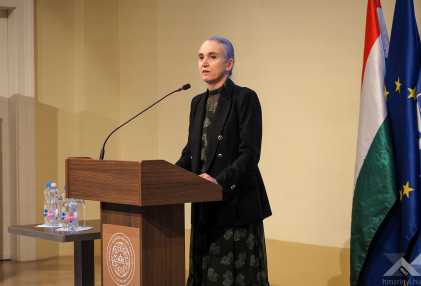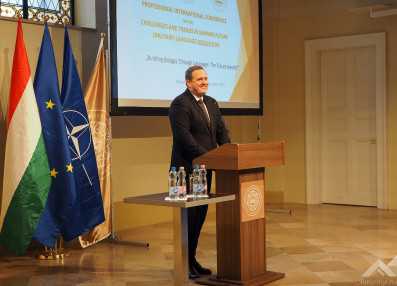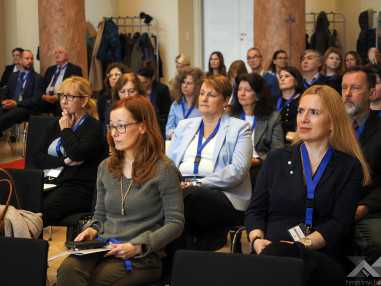Language is an Invisible Bridge Between Nations
Text: Bettina Sin | Photo: Gábor Nagy | 15:45 November 18, 2025The three-day conference “Challenges and Trends in Shaping Future (Military) Language Education” puts the future of professional language training and the challenges of military interoperability at the centre. The conference was opened at the Ludovika University of Public Service on 17 November. The event has been organised by the Ministry of Defence and the Foreign Language and Terminology Centre of the Faculty of Military Sciences and Officer Training and is being attended by professionals from half a dozen countries.
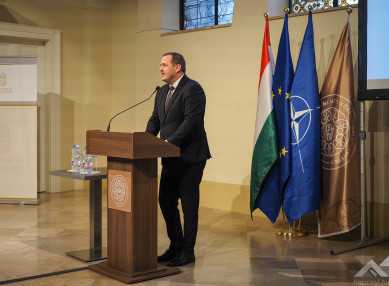
At the opening ceremony, MoD Deputy State Secretary for Human Resources Dr. János Czermann, a chief patron of the conference, emphasised that “the challenges of our current global security environment are complex, requiring not only cutting-edge technology and robust military capabilities, but equally intellectual capacity and superb communication skills. In this landscape, language proficiency is not a soft skill. It is a critical operational necessity.” He added that, since our era is defined by alliances such as NATO and the European Union, effective communication is indispensable for successful multinational missions, peacekeeping operations and joint military exercises.
“A military professional who speaks a foreign language is not just a translator, they are a cultural bridge, a force multiplier, and the key asset in reducing miscommunication […] The practical challenge lies in planning education courses that can effectively bridge the gap between theoretical knowledge and the real operational environment”, emphasized the deputy state secretary.
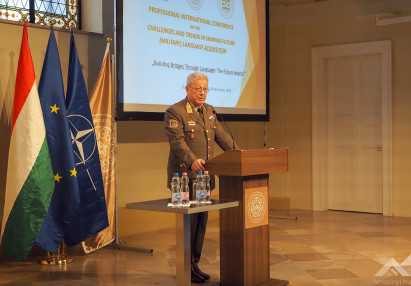
Deputy Chief of Defence (Territorial Defence) Lieutenant General Dr. Zoltán Mihócza pointed out in his speech that “the conference has always been more than a professional gallery. We are a community of nations that share the belief that language is not just a tool of communication, but one of the most powerful instruments of cooperation, trust, and security. Within NATO and beyond that, interoperability begins with mutual understanding. Plans, doctrines and agreements are vital, but without understanding, even the strongest commitment remains an empty word.”
The presentations and workshops of the following three days will involve issues such as integrating artificial intelligence and immersive technologies into education, forming personal learning paths and improving international terminological assessment protocols. The event created by the Foreign Language and Terminology Centre of the Faculty of Military Sciences and Officer Training of the Ludovika University of Public Service aims at sharing good practices, strengthening professional relations and forming bases for future cooperation in mobility programs, coursebook writing and joint research.
